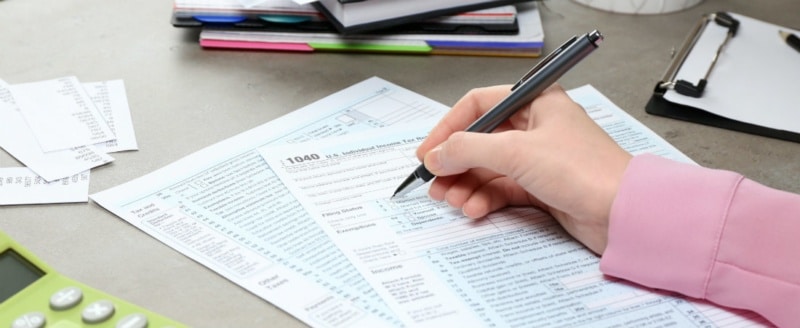Smart people use the month of December to work on tax reduction strategies. One of the most common tax reduction strategies is to pay your January mortgage payment in December. If you did this, you may be wondering just how doing so will impact your 2014 taxes—the taxes you pay in 2015.
If you paid January’s payment in December that means you made 13 interest payments in 2014, rather than the usual 12, and you’ll be able to deduct an additional month of interest payments when you file your taxes.
Keep in mind that next year, you’ll need to use the same strategy in order to get 12 payments. Otherwise, you’ll take an interest deduction on only 11 months of payments. In other words, this strategy really only works in the first year. After that, you may only be able to take advantage of this strategy every other year.
Consider alternating the years in which you prepay
If you have terrific credit and a really great interest rate on your mortgage, your interest expense plus your other deductions may not be high enough to allow you to itemize your deductions. Your itemized deductions may be lower than your standard deduction, which for your 2014 taxes (which you’ll file in 2015) is $6,200 for single filers and $12,400 for people married and filing jointly.
If this is the case for you, alternating between making 13 payments in one year and 11 payments in another may make it possible to itemize every other year.
For instance, assume that you and your spouse own a home and your 12 mortgage payments result in an interest expense of $8,500. Your property taxes are $2,000, and your state income tax is $1,500. Altogether, your total itemized deductions are $12,000—$400 below the standard deduction for a couple filing jointly. You could report your charitable contributions and your vehicle registration, but you would be barely over the standard deduction threshold. It may not be worth itemizing and risking an audit just to deduct a couple hundred dollars.
If you’ve paid your January mortgage payment in December, however, you can deduct an additional $700, which could put you over the threshold and make it worth your while to itemize your deductions. Because you’re itemizing, you then may also want to deduct your charitable contributions and your auto registration, which could amount to several hundred dollars in tax savings.
Run the numbers each year to see if this alternating strategy works for you.
Consider making extra principal payments instead
Rather than get an extra tax deduction every other year, you may want to make extra principal payments on your loan each month. Start with $50 or $100 at first, then raise the extra payment as you go along. This might reduce your annual interest expense enough to eliminate your tax deduction in a couple of years, but it will also reduce your mortgage balance quickly. By doing this, you could find yourself paying off your 30-year mortgage in 20 years or less, and that may be worth more to you than a tax deduction.
Eva Rosenberg, EA is the publisher of TaxMama.com ®, where your tax questions are answered. She is the author of several books and ebooks, including Small Business Taxes Made Easy. Eva teaches a tax pro course at IRSExams.com and tax courses you might enjoy at http://www.cpelink.com/teamtaxmama.






